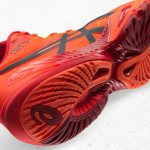Workout more, sweat more. The longer this keeps up, the more your blood volume decreases, making it more difficult for your heart to deliver oxygen to your working muscles.
Not having a sip while exercising is a sure way to dehydration. Dehydration causes not only discomfort, but also affects your performance, slowing you down.
Toss some palatable drink during your workouts and fight fatigue. Go by the rule of thumb—follow your thirst.
Power up, avoid “hitting the wall”, and take your run straight to the finish line, while staying cool and energized.

Water
Nothing beats good ol’ plain water. It is suggested that you drink 2-4 ounces every 15-20 minutes. The shorter you work out, the less you drink. The key is to quench your thirst to avoid overdrinking.
Note: Pure maple water is the new coconut water—with less sugar. It’s actual sap from trees that is boiled down into syrup. It’s filled with natural electrolytes and vitamins.
Electrolyte Mix
They come in tablets or powder form consumed with water for flavor and electrolytes (Na, K, Mg, Ca) without carbs. It makes water more appealing and helps with fluid balance and absorption.
Note: If your sweat is salty, consume tablet with sports drink for a longer workout.
Low-/No- Calorie Sports Drinks
Though usually artificially sweetened, they supply you with vitamins and some electrolytes, without the unwanted calories. It may not provide you with sufficient energy for long workouts, however it gives you the carbs to boost your mood and energy for short workouts.
Note: A good drink for athletes looking out for their calorie consumption.
Endurance Sports Drinks
They supply you with more electrolytes and carbs than the traditional sports drinks. It contains more than one type of carbs, such as fructose and glucose, helping the GI tract absorb more carbs to fuel your working muscles with greater amount of energy and boost your endurance.
Note: The more salty drinks consumed, the less urine is produced, and fewer electrolytes are lost.
Recovery Drinks, Protein Shakes, Chocolate Milk, Smoothies
Proteins combined with carbs increase glycogen storage in muscles and reduce the amount of muscle damage after workout.
Note: Choose drinks that contain about half a gram of carbs and about 0.2 grams of protein per pound of body weight.
Caffeine-Enhanced Sports Drinks
A perfect pick-me-up drink for athletes who are feeling sluggish before race day or workouts. It lowers rates of perceived exertion during two-hour running sessions and helps to push harder till the end.
Note: Consume during training sessions for body to adapt when taken on race day.
Sports Drinks
Not only do these keep you hydrated, they also boost your performance, supplying you with 50 calories for every eight ounce of consumption. It is recommended that you consume 16-32 ounces of energy drink for your hour-long workout.
Note: It powers your muscles to keep you going, especially for speed workouts, which quickly use up stored energy.
Vegetable Juice
A cup of pure vegetable juice is the equivalent of two servings of vegetables. Juices containing tomatoes have high lycopene, which is an antioxidant that protects muscles from oxidative stress caused by exercise. It also contains three-five times the sodium content in sports drinks.
Note: Sodium levels can range from 140 to 620 milligrams in regular (non–low sodium) brands. Choose higher levels if you crave for salt post-run.




